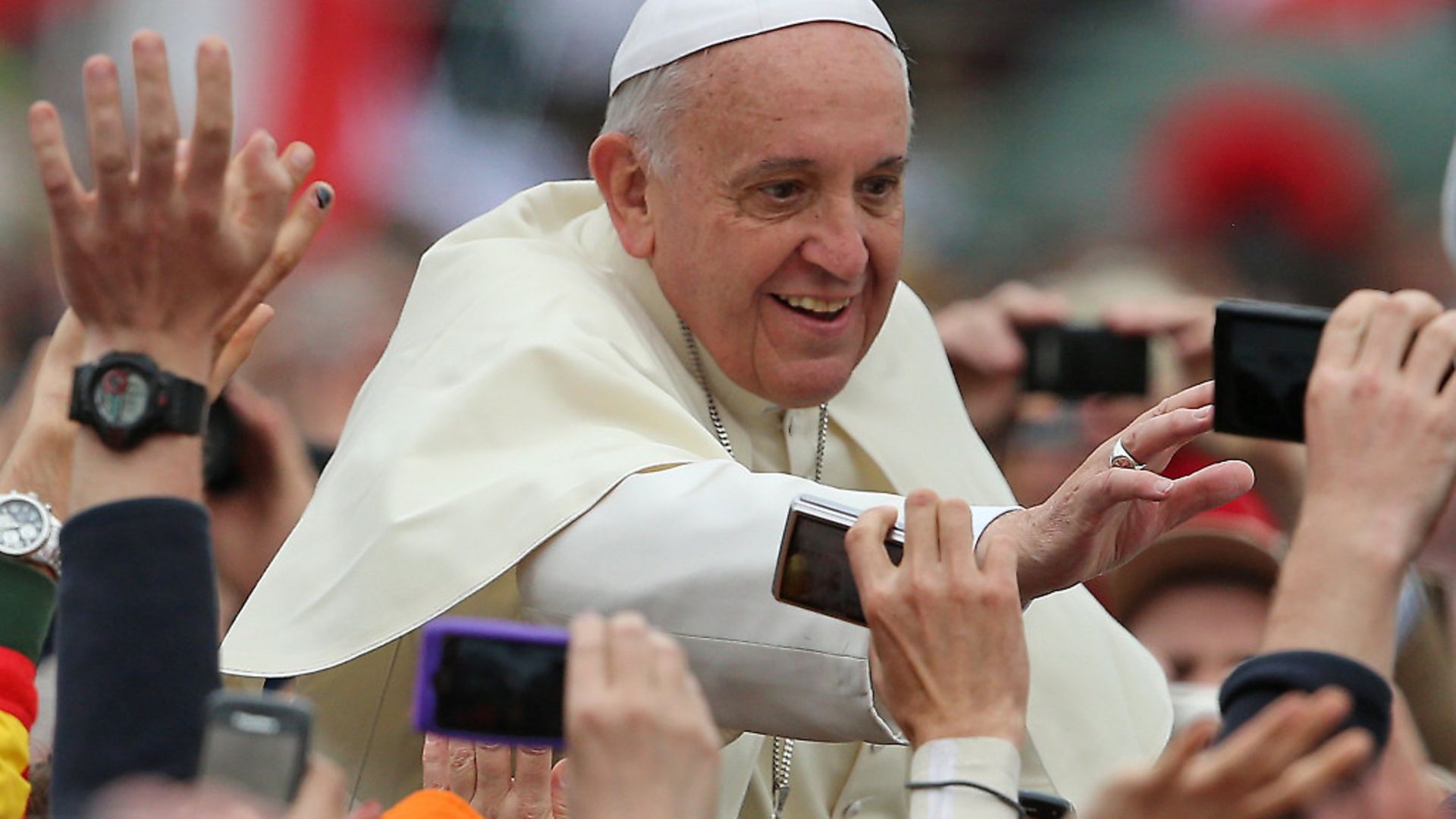
In a troubled world, facing multiple threats, the Pope is emerging as an important counterweight to some of the most dangerous forces, says PAUL KNOTT.
Stalin once dismissed the power of religion by asking sarcastically ‘how many (military) divisions does the Pope have?’
As it turned out, he does not always need any. Pope John Paul II’s remarkable influence on international affairs went far beyond Catholicism. His support for freedom played an indirect but crucial role in the downfall of Soviet totalitarianism, the system Stalin spilled so much blood to build.
Pope John Paul II’s impact was particularly pronounced in his native Poland. The country was perhaps the cornerstone of the Eastern Bloc wall. Its rebellion against Soviet imperialism triggered its collapse.
After the intervening and more introspective papacy of Benedict XVI, the world now has another charismatic Pope engaging boldly with earthly affairs. Could Pope Francis have a similar impact to John Paul II on the very different problems facing the world today?
In the absence of divisions, he is able to wield a weapon that is an increasingly potent means of influencing policy in our celebrity and social media dominated age: soft power.
As the collapse of the Soviet empire showed, no political leader, however ruthless, is ever likely to deploy enough physical force to suppress the will of millions of people indefinitely.
Few individuals have as big a platform to exercise soft power as the Pope. The role carries a status and authority that enables him to influence an even larger audience than the world’s 1.2 billion Catholics.
Despite the worst efforts of a crop of irresponsible political leaders, totalitarianism is no longer the most immediate threat to international security. The biggest contemporary dangers are climate change, division and inequality. These are all issues which Pope Francis has made a prominent focus of his papacy.
The Pope wrote an early encyclical – a papal document offering important guidance to the faithful – on the environment. In this, Francis stated clearly that a ‘very solid scientific consensus indicates that we are presently witnessing a disturbing warming of the climatic system’ that is ‘now reaching a breaking point’. To save the planet from the impact, he called for ‘changes of lifestyle, production and consumption’.
Pope Francis regularly addresses the extreme inequality and instability generated by the malfunctioning of modern capitalism. He says ‘consumerism has brought us anxiety’ and criticises the current brand of capitalism for ‘tending to devour everything which stands in the way of increased profits’. Trickle-down economics, he says, is a system that ‘has never been confirmed by the facts’ and ‘expresses a crude and naïve trust in the goodness of those wielding economic power’.
This critique stems from the Pope’s determination to re-emphasise his faith’s core values. He counsels ‘being giving of yourself to others’ and provides a lead by helping ‘the destitute, the abandoned and the underprivileged’.
Immigrants are the marginalised community Pope Francis is perhaps keenest to defend. He is regularly seen offering them support in person. Francis sees ‘welcoming the stranger at the door’ as being ‘fundamental to the faith’, in accordance with biblical commandments such as ‘and you shall also love the stranger, for you were strangers in the land of Egypt’ (Deuteronomy 10:19).
Pope Francis’ strong advocacy for the disadvantaged is challenging for some in his flock, such as those whose concerns for the rights of the unborn can appear to crowd out all else. While maintaining the Church’s position on abortion, he says ‘equally sacred, however, are the lives of the poor, those already born, the destitute, the abandoned’. He criticises those who claim the situation of migrants is a ‘secondary issue’, bluntly stating ‘that a politician looking for votes might say such a thing is understandable, but not a Christian’.
Pope Francis’ entreaties for more respectful public conduct are of equal importance to the specific issues he raises. In his sermons and writings, Francis, speaks out against intolerance, calls on us to respect others’ opinions and ‘proceed calmly’ in our chaotic and busy world. In this vein, he uses his Twitter account adeptly to rebuke the world leaders, notably Donald Trump, most responsible for lowering the standards of public behaviour.
Although traditional organised religion has been a fading force over recent decades, the role of the Pope in times like these is more important than ever. Pope Francis is being admirably bold in facing down his reactionary critics from within and without Catholicism. In a sense, his position is a usefully privileged one. He is free from the electoral pressure to pander to the noisy extremists in society and the media that afflicts many current political leaders.
Pope Francis has said that ‘the most decisive turning points in world history are substantially co-determined by souls whom no history book ever mentions’. In this he is undoubtedly correct. But his ability to influence the views of millions of those souls is considerable.









